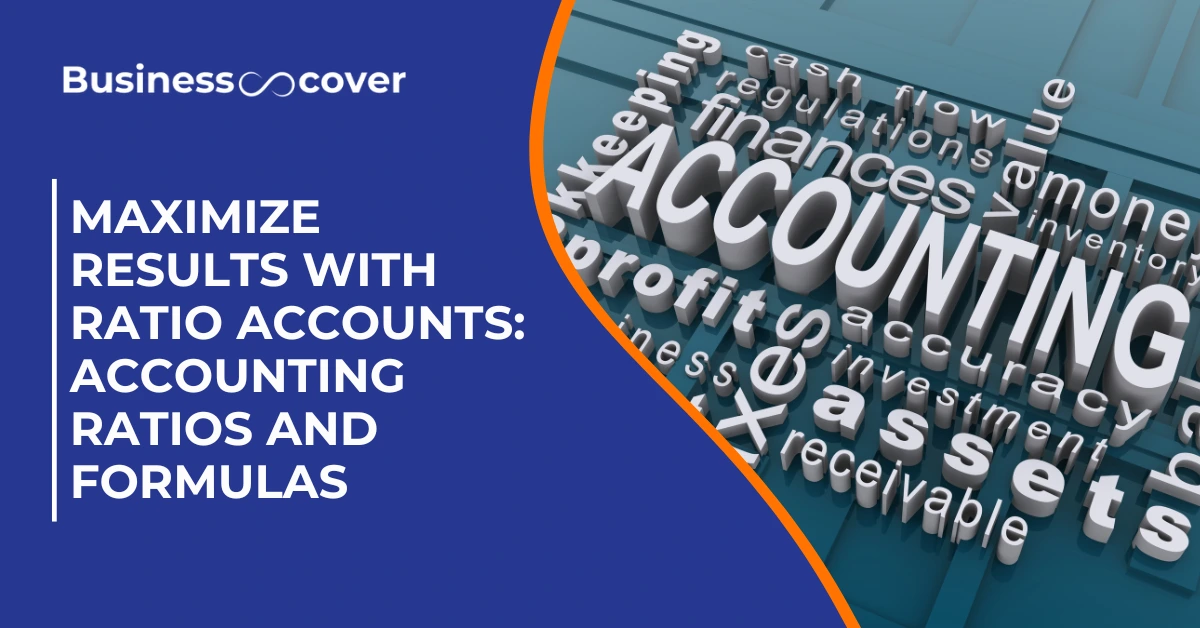Understanding the concept and conventions of accounting is key to running a successful business. These principles guide how financial transactions are recorded, analyzed, and reported. Whether you’re just starting out or refining your existing business practices, mastering the basics of accounting concepts can drastically improve your financial decisions and overall business success.
Let us unveil you to the basic accounting concepts,explaining why following Accounting concepts conventions is such a big deal, and showing you use of Accounting concept at different business stages.
What Are the Concept and Conventions of Accounting?

The concept and conventions of accounting lay the foundation for how businesses record and report their financial transactions. These principles allow business enterprises to adopt standard documentary patterns, and make financial statements accurate, consistent, and informative to the readers.
Accounting Concepts
Accounting concepts are the basis of accounting concepts and include fundamental ideas and assumptions that form the structure for preparing and presenting financial statements. Without these concepts, there would be no common, simple and well defined framework to address the financial needs of businesses.
- Basic Concepts Accounting such as the business entity concept and money measurement concept provide guidelines for recording financial data.
- They help maintain data accuracy and consistency in manner that facilitates comparison between businesses and industries.
Accounting Conventions
Accounting conventions, on the other hand, as the practices or rules that have developed over time that companies adhere to in their regular operations. These conventions of accounting help to maintain consistency in the treatment of business transactions thus making them fair.
Importance of the Concept and Conventions of Accounting
When businesses adhere to the concept and conventions of accounting, they benefit in several ways:
- Uniformity: Reduces variation in the financial information provided in the reports and thus improves the comparability of such information.
- Transparency: Accurate measure that gives a true and fair view of a company’s position to ensure that users rely on them when making economic decisions.
- Legal Compliance: Business organizations and companies should follow the accounting standards tabled in the financial legislation to avoid legal consequences.
- Informed Decision-Making: In so doing, reports prepared from these concepts provide decision-makers with accurate information for decision-making at the strategic level.
For any organisation seeking to be successful, it is very vital that they should or else embrace and incorporate the knowledge of the accounting basics concepts necessary for the smooth running of the organisation.
Exploring the Basic Concepts of Accounting

The basic concept of accounts is the foundation upon which all accounting is built. These principles guide the preparation of accurate financial statements and help businesses maintain consistency in their records.
1. Business Entity Concept
This concept treats the business as a separate entity from its owner. This means that the personal transactions of the owner should not be mixed with business transactions. By following this principle, businesses can maintain clear records and avoid confusion.
2. Money Measurement Concept
It holds that only those activities that can be expressed in terms of a monetary value are recognized. For instance, when a company has improved the brand value of their organization, nothing is noted down unless it is monetarily quantifiable.
3. Going Concern Concept
To this principle, businesses are presumed to carry out their operations as if they are never going to stop as long as there is no information to the contrary. This affects the recognition and measurement of assets and liabilities as on the financial statement.
4. Accrual Concept
This principle asserts that all income and expenditure should be reported in the period in which the transaction costs are indirect regardless of when they are paid. This means that income statements give a true picture of a business at a given period and in a special way.
By mastering the basic accounting concepts, business owners and financial managers can ensure that their financial records are in good shape and that they follow generally accepted practices.
Also Read | What are the Accounting Standards? Your Quick Guide
Understanding the Conventions of Accounting
Accounting conventions are real, and procedures are applied to ensure different businesses employ a consistent approach when preparing their accounts. While not mandatory, they remain a necessity for promoting clarity and relevance of the financial info disclosed as far as can be compared across firms.
1. Conservatism Convention
This principle tends to means that financial reports should be conservative. Various expenses have to be recognized when they are incurred and identified; any gains are to be recognized only when they are receivable. This helps to avoid cases where business financial position is over stated.
2. Consistency Convention
This convention requires that a business should use exactly the same accounting method in successive financial years once it has selected that method. Such consistency enables the user to perform comparisons across the various financial statements in order to make analysis.
3. Disclosure Convention
It requires that all material financial information shall be reported in the financial statement. This way all the investors the regulators and any other stakeholders will be in a position to have full disclosure of all the information that would enable them to make decisions on the company.
4. Materiality Convention
The materiality principle points to the fact that businesses only require to disclose financial reports pertinent data relevant to the decision making of a reasonable investor. For example, micro and immaterial amounts may not require further separation.
These conventions in accounting facilitate its main purpose of helping businesses portray their financial situation effectively and accurately for the purpose of attracting investors and for legal reporting.
The Basis of Accounting Concepts and Their Role
The basis of accounting concepts is the foundation on which all activities of financial transactions and communication within the business firm are built upon. These key concepts in accounting help to determine how transactions will be recorded to reflect an orderly process that will produce reliable financial information to users.
Key Elements of Accounting Concepts:
- Relevance: The data stored has to be of value for decision making.
- Reliability: Financial information should be in harmony with other accounting information with full compliance with the general accounting standards.
- Comparability: Appropriate use of accounting policies helps the businesses compare its operational results from one period to another.
The study of the basis of accounting concepts makes it possible for businesses to be in a position to achieve the set market standards and provide for their operations appropriately.
How to Apply the Basics of Accounting Concepts in Your Business
To begin with accounting basics concepts does not have to be a problem. By following these practical steps, you can integrate accounting principles into your business:
Step 1: Learn the Core Concepts
Understanding the basic accounting concepts is essential before diving into more complex topics. Familiarize yourself with concepts like the business entity concept and accrual concept to lay a strong foundation.
Step 2: Implement Accounting Tools
Accountingtools to a large extent should cause the operations to be conducted automatically and accurately. Current tools are developed to work in compliance with accounting requirements, and with their help, it will be rather simple to monitor the financial data.
Step 3: Follow the Accounting Conventions
Use the elements of the convention like conservatism and consistency to make your business’s financial information credible and consistent over the periods.
Step 4: Consult with Professionals
Hire an accountant or financial consultant to ensure that you are following all the right processes and the laws and regulation.
By taking these steps, your business can successfully apply the accounting from basic and begin to use accounting concepts conventions to its advantage.
Benefits of Mastering the Basics of Accounting Concepts
Businesses that understand and apply the basic concepts accounting see several benefits:
- Enhanced Decision-Making: Completeness and reliability of records assists you to make right decisions concerning the future of the business.
- Financial Stability: Regular adherence to basic accounting concepts ensures your financial health and prevents costly errors.
- Trust and Transparency: Adhering to accounting concepts conventions makes investors, clients, and stakeholders develop confidence in an organization.
- Long-Term Growth: By employing accounting from basic, the growth of expansion for businesses can be regarded through developing a fundamental base.
Conclusion
Mastering the concept and conventions of accounting is essential for businesses of all sizes. Such principles provide a framework for recording and reporting financial information as precise, coherent and credible. By applying the basic of accounting concepts and conventions of accounting, businesses can build a strong foundation for growth, maintain legal compliance, and foster trust among stakeholders.
For you who are new to accountancy or improving your practice, accounting basic concepts of any business should be known and be implemented in the right manner for better future business returns. Implement these principles and you would better capitalize to make good financial conclusions and transform your business.
Frequently Asked Questions
What is the concept and convention of accounting?
Accounting is replete with assumption, concepts, standard and conventions. Terms like relevance, reliability, materiality, and comparability have their backing from the conventions aimed at providing a framework of standardization to this process.
To whom does the credit for introducing accounting go?
Italian roots. However, the basics of this profession which can be referred as the father of modern accounting is Italian Luca Pacioli, who in 1494 described the double-entry bookkeeping system used in Venice merchants in his Summa de Arithmetica, Geometria, Proportioni et Proportionalita.
What do we understand by the term Cost in Cost Accounting?
It means the sum of money paid to purchase any article or service. In simple terms, cost refers to an economic value placed on the risks, resources, material, time and utilisation to acquire buyer goods and services.







